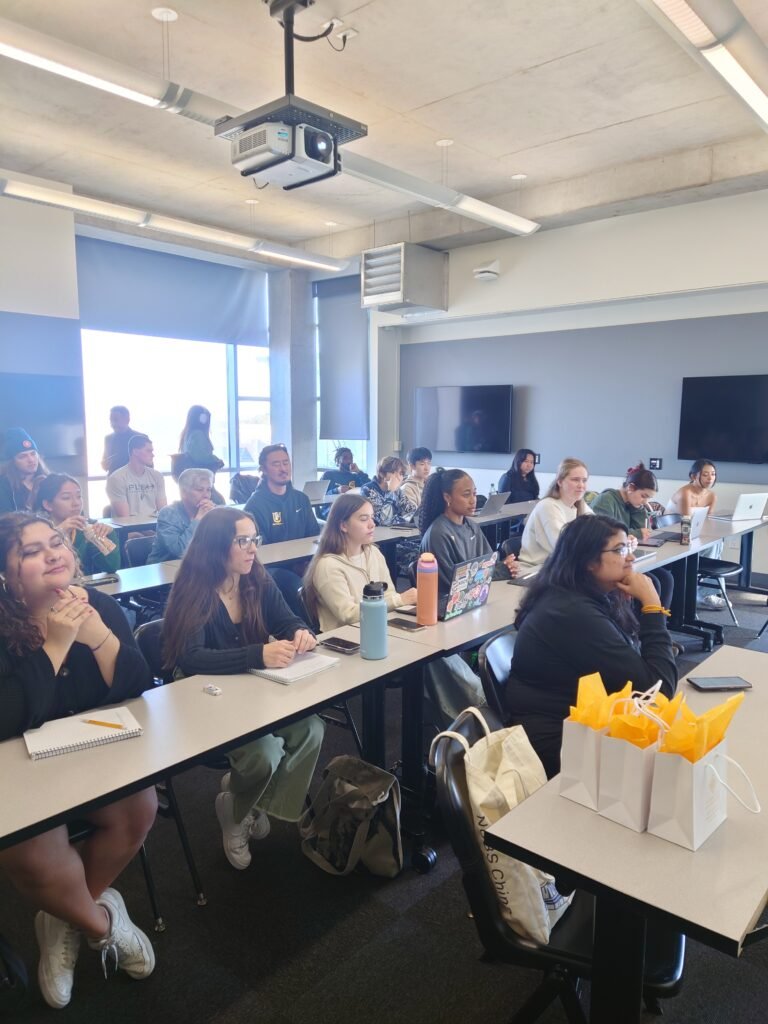On the 18th of March, the University of San Francisco’s Center for Business Studies and Innovation in Asia-Pacific (CBSI) and the School of Management International Business Program organized a thought-provoking dialogue between Ambassador Larry Greenwood, former US Ambassador to APEC, and Consul General Ambassador Hoang Tuan from Vietnam which was moderated by Prof Xiaohua Yang. The focal point of discussion was the indispensable role of international institutions in Asia in fostering trade and investment relations between the United States and Asian countries.
Initiating the discourse, Professor Yang contextualized the event with references to various CBSI-organized APEC events, the Carter Center event, and forums addressing sustainability and women leadership within APEC. Delving deeper into the dialogue, Ambassador Greenwood and Consul General Tuan provided valuable insights into the significance of international institutions, particularly within the Asian context.
APEC, inaugurated on November 9, 1989, emerged as a pivotal platform for promoting trade and investment. Consul Tuan highlighted APEC’s extensive network of work groups and underscored Vietnam’s staunch advocacy for free trade upon its accession to APEC. However, amidst shifting global dynamics, characterized by skepticism towards open trade and investment from major players like the US and China, APEC faced challenges exacerbated by the COVID-19 pandemic. Despite these obstacles, APEC persisted, hosting over 1000 meetings in 2023 and pivoting towards addressing pressing issues such as climate change.
Drawing attention to the intricate web of relations within Asia, Ambassador Greenwood emphasized the role of bilateral meetings in fostering economic cooperation. Notably, he shed light on the innovative collaborations between Korea and Japan in the realm of startups, transcending historical tensions for mutual prosperity. Reflecting on the evolution of US trade policy, Ambassador Greenwood noted a departure from the country’s erstwhile advocacy for free trade, positing implications for future engagements within APEC.
Vietnam’s trajectory within APEC served as a microcosm of the broader narrative of economic development through international institutions. Having joined APEC in 1997, Vietnam reaped substantial benefits from free trade, bolstering its economic growth. However, challenges persist, with expectations of deeper engagement under the Biden administration and a renewed focus on liberalization.
Beyond APEC, the dialogue expanded to encompass the roles of ASEAN and the Asian Development Bank (ADB) in fostering stability and cooperation. ASEAN, characterized by its self-generating momentum, serves as a beacon of regional integration, while the ADB, with its origins rooted in Japan, continues to facilitate development across Asia, even engaging with European countries.
Looking ahead, as APEC gears up for its 2024 summit in Peru, expectations loom large. Amidst geopolitical shifts and the imperative of post-pandemic recovery, the onus lies on international institutions to navigate complex terrains and catalyze economic cooperation in the Indo-Pacific region.
In conclusion, the dialogue underscored the indispensable role of international institutions in fostering economic cooperation in Asia. From APEC’s multifaceted agenda to ASEAN’s regional integration efforts and the ADB’s developmental initiatives, these institutions serve as linchpins of stability and prosperity, shaping the contours of the global economy in the 21st century. As the world grapples with unprecedented challenges, collaborative endeavors spearheaded by these institutions remain imperative for realizing the shared vision of a prosperous and interconnected Asia-Pacific region.

